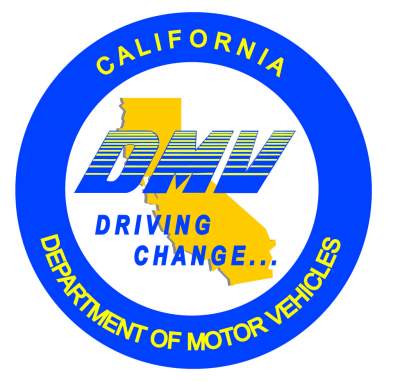The California DMV reports that there are ten new laws in effect this year that could have serious consequences for drivers. Be sure to read this list carefully to avoid problems behind the wheel in the New Year!
Cannabis Use in Vehicles (SB 65, Hill): This law prohibits smoking or ingesting marijuana or marijuana products while driving or riding as a passenger in a vehicle. The DMV will assign negligent operator point counts for this violation. In addition to the California Driver Handbook, the DMV also will revise the Motorcycle Handbook and the DMV’s website to include information relating to marijuana violations.
Buses and Seatbelts (SB 20, Hill): Beginning July 1, 2018, this law requires a passenger on a bus equipped with seat belts to be properly restrained by a safety belt. It also prohibits a parent, legal guardian or chartering party to transport on a bus, or permit to be transported on a bus, a child who is at least 8 years of age but under 16 years of age, unless they are properly restrained by a safety belt or an appropriate child passenger restraint system that meets federal safety standards. A violation of these provisions is an infraction punishable by a fine.
DUI – Passenger for Hire (AB 2687, Achadjian): Beginning July 1, 2018, this law makes it unlawful for a person to operate a motor vehicle with a blood alcohol concentration of 0.04 percent or more when a passenger for hire is in the vehicle at the time of the offense. This will mean that drivers of passenger for hire, in their personal vehicles, will be held to a higher standard of safety while transporting people. The DMV will suspend a person’s driver license if a conviction is added to their record. Commercial driver license holders will receive a disqualification.
Parking Violations for Registration or Driver License Renewal (AB 503, Lackey): This law makes changes to a requirement under which vehicle registration renewal and driver license issuance or renewal is not granted for having unpaid parking penalties and fees. It creates a process for low-income Californians with outstanding parking violations to repay their fines and penalties prior to the parking violation being reported to the DMV. The law also allows the registered owner of a vehicle to file for Planned Non-Operation status when unpaid parking penalties are on the vehicle’s record. It also allows for someone with outstanding parking penalties and fees, to obtain or renew a driver license.
HOV Decal Program (AB 544 Bloom): Beginning January 1, 2019, this law creates a new decal program to allow certain low emission vehicles to access high-occupancy vehicle lanes, regardless of vehicle occupancy level, for a four-year term. Access to high-occupancy vehicle lanes for vehicles with green and white decals will expire January 1, 2019. Vehicles issued a green or white decal in 2017 or 2018 will be eligible to reapply for a decal in 2019 granting them access to high–occupancy toll lanes until January 1, 2022.
Disabled Person Parking Placards and Plates (SB 611, Hill): This law makes changes to the administration of the Disabled Person Parking Placard and Disabled Person License Plate Program, including requiring applicants to provide proof of true full name and birthdate. The law also will limit the number of replacement disabled person parking placards an applicant can request without obtaining a medical certification to four in two years. It also requires the DMV to establish a renewal process that requires applicants to return a renewal notice by mail every six years. Currently, all permanent disabled placards expire in June 2019 and they are automatically renewed every two years. The placards expiring in June 2023 will be the first batch of placards subject to renewal. Applicants will not be required to obtain a medical certification as part of the renewal process. For more information about the new law effecting Disabled Person Placard and Plates, visit the DMV website.
Motorcycle Training Courses (AB 1027, Acosta): This law authorizes the DMV to accept a certificate of satisfactory completion of any motorcyclist-training program approved by the California Highway Patrol in lieu of the required motorcycle skills test. Applicants for an original motorcycle license or motorcycle endorsement under 21 years of age continue to be required to complete a novice motorcyclist-training program.
Firefighter License Plate Program for Surviving Family Member (AB 1338, Low): This law allows a surviving spouse, domestic partner, or child of a deceased firefighter or deceased retired firefighter to independently apply for and receive a California Firefighter Special License Plate for their vehicle.
Private Carriers of Passengers (SB 19, Hill): Beginning July 1, 2018, this law transfers regulatory authority over private carriers of passengers (such as church and youth buses) from the California Public Utilities Commission to the DMV.
Road Maintenance and Rehabilitation Program (SB 1, Beall): Beginning January 1, 2018, the DMV is required to begin collecting at the time of registration or renewal the Transportation Improvement Fee (TIF) ranging from $25 – $175, based on the vehicle’s current value. The law also requires the department, beginning July 1, 2020, to collect a Road Improvement Fee for zero-emission vehicles with a model year of 2020 or later. The TIF is based on the vehicle’s current market value. Customers with a vehicle renewal notice due on January 1, 2018 and later will include the TIF. To see projects in your area, visit www.rebuildingca.ca.gov.


